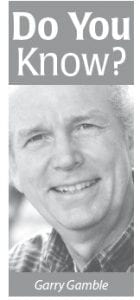The metaphorical phrase, “Laws, like sausages, cease to inspire respect in proportion as we know how they are made,” first appeared in The Daily Cleveland Herald, March 29, 1869. The laconic quote originated with American lawyer-poet John Godfrey Saxe (1816– 1887), known for his re-telling of the Indian parable “The Blind Men and the Elephant.” The basic premise, suggesting that humans may have partial information.
How, coincidently, apropos here.
Given sausage is made–using whatever is salvaged from a pig once everything else has been put to use– this well-known American idiom may have some merit; theorizing, if people watched sausages getting made, they might be less inclined to throw ’em on the grill.
It is my opinion–pigs aside–that a knowledge of how laws are made, serves to increase our respect for both the rules of society as well as their makers; and, if it does not, we are at least able to express our dissatisfaction in a knowledgeable manner.
Viewing the law-making process, however, will no longer be an option for Cook County taxpayers. During the May 8th board meeting, county commissioners unanimously agreed to spare you from exposure to the potential unpleasant truths that may emerge as a result of video-taping future committee of the whole meetings . . . essentially, where laws, policies and decisions–affecting you–are made.
Their May 8th discussion went like this . . .
County Administrator Jeff Cadwell: “We’ve had conversations, one-on-one, with several commissioners about whether or not we’re going to be recording committee of the whole or work sessions and by far and large, the research that I’ve done with AMC [Association of Minnesota Counties] and individual counties, is that work sessions are not recorded for much of the same reason that–Molly was talking about data practices–the stuff that’s in her head isn’t data, and work sessions are the opportunity for us to clarify the stuff in our head.”
Commissioner Bursheim: “I’ve heard people say, and myself included, that sometimes we’re maybe not as transparent to each other as we could be when we’re on camera, and sometimes the dialogue can change. I don’t think it’s been a real problem, but I think maybe the intention of this, as you think back, would be for us to have the opportunity not to be in that kind of limelight; not that it’s bad or . . . it doesn’t bother me, but maybe it’s a better process so we can be more open.”
Commissioner Doo-Kirk: “I’m trying not to be royally ticked off at the moment because I said from the get-go that people are not comfortable speaking freely with the camera and I was shunned and shamed about it and we had a resident come to the meeting who took two anxiety pills to ask us a question because they were uncomfortable because the cameras were on. I don’t like people to come talk to us and feel ill and nervous and uncomfortable.”
James Madison, one of the primary architects of our Constitution, cited: “The right of freely examining public characters and measures, and of free communication among the people thereon . . . has ever been justly deemed the only effectual guardian of every other right.”
Can I get an, “Amen?”
I am not alone in believing that a more open, responsive relationship between local government and electors would be a good thing.
Transparency as to a person’s thoughts– what is often left unspoken– can sometimes only be discerned by observing.
There is an appealing authenticity to honest public servants who never wear a false face and do not pretend to be anything but who they are. Let’s just say, “transparency breeds legitimacy,” to which people tend to respond.
Given the results of last year’s taxpayer survey, it is crushingly evident the one thing this administrator and county board cannot afford to lose any more of is trust. In fact, transparency helps breed trust. As Ivan Krastev, contributing opinion writer for The International New York Times, pointed out: “Transparency is the politics of managing mistrust.”
Well-known Democratic Party political strategist, Peter Fenn, is in agreement: “A basic tenet of healthy democracy is open dialogue and transparency.”
Too much effort is being invested by the present local governing body in attempts to control information. I only wish the same could be said about spending!
Ted Gup, a writer known for his work on government secrecy, alleges: “Secrecy is just one of the toggles on their control board. The mindset is in place . . . You’re going to have to bring in people dedicated to transparency, and you have to demonstrate that there are rewards for candor.”
Philanthropist Ray Dalio believes, “Radical transparency fosters goodness in so many ways for the same reasons that bad things are more likely to take place behind closed doors. I believe in radical truth and radical transparency to achieve meaningful work and meaningful relationships.”
Even former Major League Baseball player–Mike Paul–gets it: “Trust, honesty, humility, transparency and accountability are the building blocks of a positive reputation. Trust is the foundation of any relationship.”
Edward Snowden, undoubtedly, one of America’s most consequential whistleblowers, espouses: “There can be no faith in government if our highest offices are excused from scrutiny – they should be setting the example of transparency.”
Wouldn’t it be great if transparency became the default for those that govern?
Glenn Greenwald, a fellow who interviewed Snowden on a number of occasions, observed: “Secrecy is the linchpin of abuse of power . . . its enabling force. Transparency is the only real antidote. Transparency is for those who carry out public duties and exercise public power. Privacy is for everyone else.”
Yes, as Mother Theresa so faithfully encouraged: “Honesty and transparency make you vulnerable. Be honest and transparent anyway.”
“The liberties of a people never were, nor ever will be, secure, when the transactions of their rulers may be concealed from them.”–Patrick Henry
Gotta go . . . the grill awaits.



Loading Comments